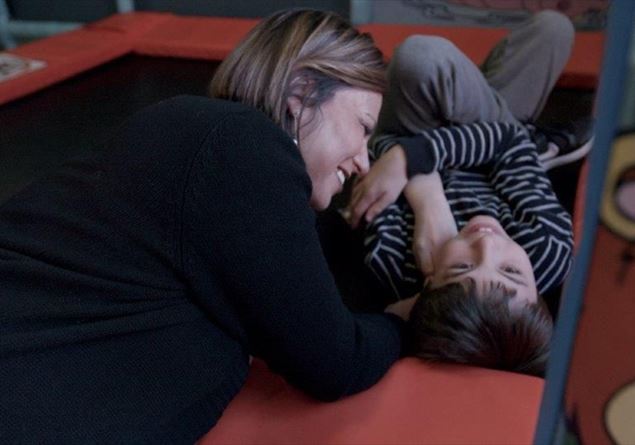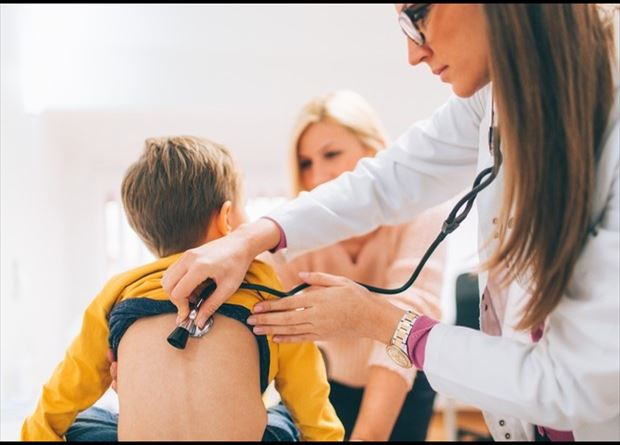Word of order: listen. Listen to desires, dreams, aspirations of young people with disabilities. It is the mission of the Seraphic Institute of Assisi, an Italian center of excellence for the care and rehabilitation of children and teenagers with complex disabilities, today at the forefront of the realization of the Life projectforeseen by the new legislation that deals with autism. Thanks to the guidelines of the Istituto Superiore di Sanità for autistic spectrum disorders and law 227/21, culminating in Legislative Decree 62/24, the change of course has been traced: let’s think about the person, not the disease. Where the diagnosis ends, life begins. There are nine Italian provinces involved In the Pilota project (Brescia, Catanzaro, Florence, Forlì-Cesena, Frosinone, Perugia, Salerno, Sassari and Trieste), with the aim of extending it soon to the whole national territory. The challenge has started and the operators are put to work: among them Francesca Di Maolopresident of theSeraphic Institute of Assisito which we asked some questions, on the occasion of the World Day for awareness of autismwhich is celebrated on April 2 in every continent.
What is the added value brought by the new legislation?
The legislative decree provides, no longer as a possibility but as a right, at the request of the caregiver or the person with disabilities, of have a “life project”. This project, which is the heart of the new legislation, leads to units all those interventions that were previously fragmented.
In practice what changes?
It means dealing with the question from a new point of view. Now the school representatives, health personnel, those who deal with the person with disabilities and the person with disabilities themselves will be put at the same table. While before the interventions were individual and uneven – Municipality, ASL, INPS each acted on their own – from now on it will be A shared commitment and organAnyized, in which all actors move as a unique entity.
Do you also change the role of the person with disabilities?
Of course, his role becomes central. To be dominant will be his desires, expectations, dreams, what he likes and what they don’t like: Thus the entire treatment report is revolutionizedin the center of which the person with disabilities It is no longer an individual to look after, but the protagonist.
With what disability do you interface daily in your institute?
In our structure we have to do with people with very serious disabilities: I’m talking about children and teenagers with autistic spectrum disorders or in any case with neurosviluppo disorders. Almost none of them have a verbal language and often have “problem behaviors” (actions that can endanger the person or others, editor’s note) and behavior disorders. THE cases of autism of which we deal with are almost all low -operation (with serious difficulties in social communication, as well as problems in the cognitive, sensory and motor sphere, editor’s note).
Does the Vita project involve new methods of approach from operators?
Yes, and I had not sensed the flow rate until we started this new training course. We all who are dealing with fragile subjects with serious disabilities we must change the way of piging towards them. And the road had already indicated it Pope Franciswhen he came to visit our institute. “Here we are among the wounds of Jesus“He told us, and then add: “But these wounds must be listened to”. It is from here that we have to start with this project: they are the subjects and we have a duty to listen to us. And then build, around the person, not to the pathology.
Build a new way of communicating?
It is the first essential step: first of all to find a language code suitable for any situation and every person with disabilities. An alternative language to the verbal one: We have always operated in this sense, but it is an aspect that must be enhanced to the maximum and now it is one of our priorities. We use cards, images, gestures, everything that can help us replace words when they are not effective. And it is within this new communicative channel that listening must be built.
And how do you listen to a person who doesn’t speak?
We must learn to perceive his signs, understand the messages, Through the looks, the gestures, the attitudes, the changes of expression. Because it is an individual who has feelings, desires, dreams, which we have a duty to understand and understand.
You first nodded to the “problem behaviors”: in these cases how can communication be improved?
It is one of the greatest difficulties in facing autistic spectrum disorders. These behaviors actually arise in many cases from one wrong communication: The person does not feel happens and responds with strong or broken reactions, because we have a direct attitude to impose what he has to do without stopping to listen to what he really needs.
In the case of autism, one of your duties is also to protect the people you deal with: from external dangers, but sometimes even from yourself …
Also in this aspect of our work we have to change approach: by hosting people with serious disabilities in the structure, we have created very tutelants living environments, having the constant concern that children and young people can get hurt. This overprotective attitude – despite being justified ampion – it can sometimes be counterproductive. If we make ourselves dominate from fear, in fact, we remove To the people we deal with freedom.
What freedom are we talking about?
Of freedom to chooseof freedom to experimentmake mistakes, try again. Not only caregivers or family, but above all we operators We have a tendency to remove To the person with disabilities any stimulus or opportunities for choice, fearing that something goes wrong. Through the life project, the opposite is done: possibilities are addedbuilding – in a safe context – an environment in which the individual can achieve, each on the basis of his own faculties, his autonomy. Nothing is removed to protect, but but It is added to grow. And this is to the benefit of health.
What kind of tools do you have available to carry out this project?
Training first of all. The courses have already started, provided for by the law, organized at the ministerial level in the nine provinces involved in experimentation, including Perugia. Specifically, the Seraphic Institute of Assisi felt the need for a intense trainingalso endowing up with outdoor supervisors: It is a figure who accompanies us not only in frontal training, but enters the residences, participates in the work contexts and supervises the work of our staff. It is a choice that arises from the need to change our way of piging in a concrete way to people with disabilities, questioning us. Because this is what we have to do. The tools are there: the new legislation allows us to start this revolution, now it’s up to the operators – public and private – to change mentality.
What are the rocks to overcome why this project becomes reality?
We are the only one rock. I’m talking about operatorsof all sectors, who deal with people with disabilities and in particular with autistic spectrum disorders. To create this change – which I would call epochal – we must act with humility, reviewing the approach used so far at the root. We know well that questioning is not easy, but it is necessary If we want to get to a turning point for the good of the people we take care of. The logic from which you have to get out is the performance, standardized, still prevailing, centered on the diagnosis, pathology and clinical intervention. An approach that is based on the presumption of always knowing the needs of the person and of being able to provide her with adequate performance. Here, it is precisely this way of thinking that it must be distorted. This is the great challenge.
Are families ready for change?
Families are ready and all right! On the contrary, For some time they asked for a change of coursewhich expected an attitude of this type. They need to be supported by a network of operators who act in a harmonious and organized way, with the person with disabilities in the center, not his illness.
So what is missing?
Change cannot drop from above. Serve An alliance between institutions, third sector entities, families, operators and citizens. We are all involved. Of course, the gaps are still many and each region has different realities and critical issues. It is necessary to intervene in the context of integration and inclusion, in health services, in the school with support teachers. Resources must be enhanced and investing in updating. The new law provides for all this, it is time to get on your sleeves to move on to the facts. Put the teacher, the neuropsychiatrist, the educator, the operator of social services, the parents, the exponents of the city services who can intervene in daily life at the same table (I think of transport for example): it is the only way to carry on a project that we have at the center the aspirations, desires, interests, preferences of the child or boy who takes care of. The change must be generalized and take place simultaneously in any environment, otherwise a piece will always be missing.
The person with disabilities becomes the protagonist: can it make me a practical example?
For example in the meetings that concern her. The project provides that People with disabilitieseven if they do not have a verbal or mental delay, can participate in meetings in which we talk about them. Why should we exclude them? It is an important step, that we should take just to remind us that we deal with people.
There is talk of a project independent life: but what autonomy can be aspired in case of autism or severe disability?
Each situation is a case in itself with different levels of autonomy. In our institute we confront very high levels of gravity, but this does not exclude the possibility of reaching a level of autonomy commensurate with the pathology. With adequate tools, good results cannot be obtained not only in the expressive faculty, but also in the ability to dress and in thepower autonomywhich often in autism is selective. All elements that strengthen the person and prepare it to face the future.
Italy, with Legislative Decree 62 of 2024, is the avant -garde in the care of people with autism, a growth pathology worldwide …
Autism is growing in the world: according to the most updated estimates It affects one in 36 children. So the emergency is there and cannot be tackled with buffer solutions. With the new legislation our country has taken a brave step forward and it is on this path that we must walk.
What is your commitment immediately?
Make the Seraphic Institute of Assisi one of the most advanced workshops of this transformation, which combines spirituality, competence and innovation, looking to the future with a single goal: to make the right to a dignified life a concrete reality For each person with disabilities.
What do you need to make it?
I would like to appeal to structures like ours, in particular religious ones: We should make more network among usto share protocols, resources and knowledge. Only in this way can we, once the child or boy has come out of our structure and return home, accompany him to his family life. Our work is intensive and manages a phase of his life, but what happens after us? We must make sure that parents and family members do not feel abandoned, imagining that there are territorial and home services that continue our work. Only by creating a solid and efficient network will we fulfill the life project in full.
In the photos, Francesca Di Maolo.










